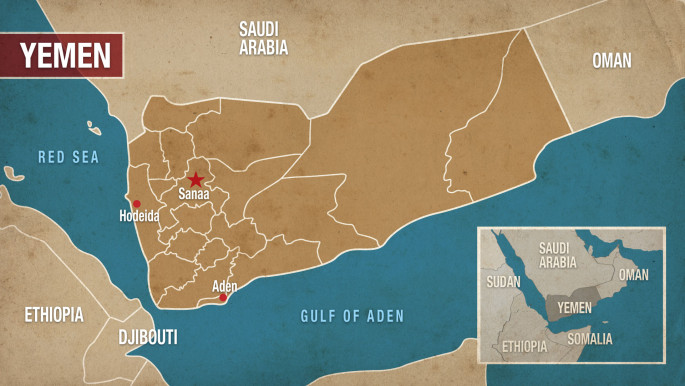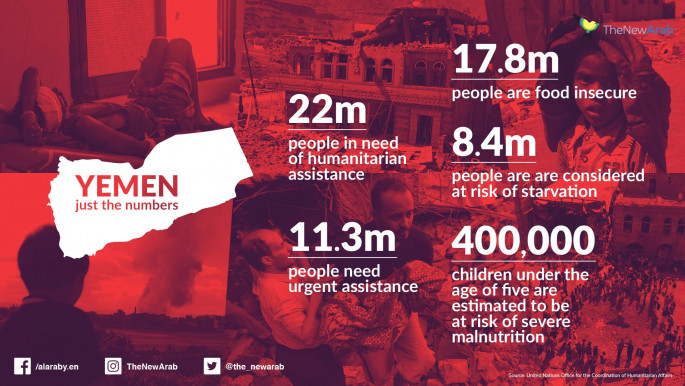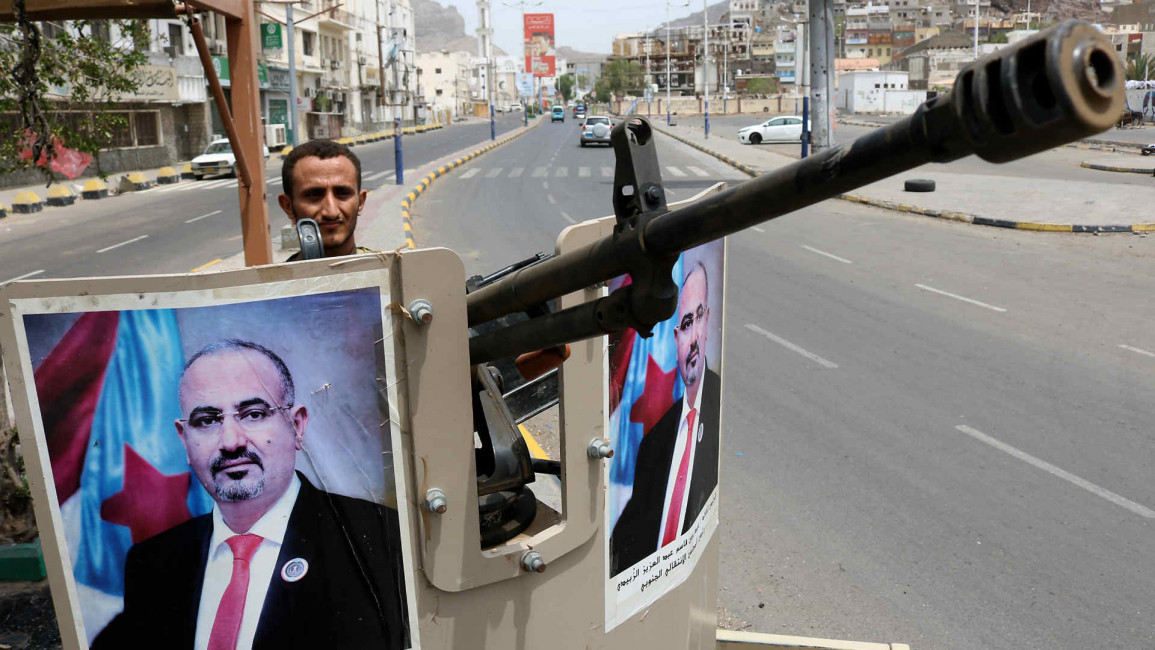Yemen government rules out talks until separatists withdraw from Aden
The fighting saw forces that back the separatist Southern Transitional Council (STC) seize the port city, taking five barracks, the presidential palace and the prime minister's office.
The fighting sparked tensions within a Saudi-led coalition that backs the government against northern-based Houthi rebels.
But a key member of the coalition, the United Arab Emirates, trained the force that led the Aden offensive.
Saudi Arabia has proposed peace talks in Riyadh, a call supported by the UAE.
Yemen's Washington embassy, quoting the foreign ministry, on Wednesday welcomed the Saudi initiative to address the "coup" in Aden.
But, it said in a tweet, separatists "must first commit to total withdrawal from areas forcibly seized by STC in past few days before start of any talks".
Yemen in Focus: UAE 'retreats from conflict' to protect its own borders
The STC has voiced willingness to take part in the talks, but has not given any sign that it is ready to withdraw, say security sources close to the movement.
 |
South Yemen was an independent country until it merged with the north in 1990.
An armed secession bid four years later ended with its occupation by northern forces, provoking resentments that still persist.
The deadly fighting in Aden has further complicated Yemen's devastating conflict, which has killed tens of thousands of people and contributed to what the UN calls the world's worst humanitarian crisis.
The Saudi-led coalition intervened in 2015 to prop up the government of President Abedrabbo Mansour Hadi after the Houthis ousted it from the capital Sanaa.
But last week's clashes saw the UAE-trained Security Belt Force seize Aden - the government's interim capital -potentially further destabilising the country's south.
The fighting left 40 dead and 260 wounded, according to the UN.
Hadi himself has long been absent from Yemen, having fled to Riyadh as the Houthis advanced on Sanaa.
The Iran-backed rebels continue to control vast swathes of the country including the capital and areas close to the Saudi border.
Analysts say the tensions may weaken the coalition's military campaign against the Houthis.
 |
Follow us on Twitter: @The_NewArab


![President Pezeshkian has denounced Israel's attacks on Lebanon [Getty]](/sites/default/files/styles/image_684x385/public/2173482924.jpeg?h=a5f2f23a&itok=q3evVtko)



 Follow the Middle East's top stories in English at The New Arab on Google News
Follow the Middle East's top stories in English at The New Arab on Google News


